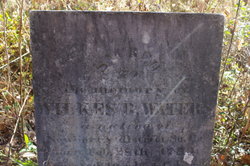

There’s no better buzz than nailing that new song, or going out on stage.” The rest will struggle, but it’s a lifestyle, and a form of expression. 0005% of musicians will make a decent living. “If you want to make money, you’re definitely in the wrong business, like. He understands the frustration, but for him, music isn’t about financial concerns. We haven’t had a major label deal in about 12 years, so we probably wouldn’t have been able to make the last three records.” “You needed a major label to make a record back when we started. “If it was back in the old regime, the band could’ve been long gone,” he says. Yet Keating says their longevity has relied on that industry-wide change. They still work within music - booking bands, teaching music - but it’s a far cry from the rock’n’roll dream so many of us have absorbed. For the last 10 years, we’ve had to do bits and pieces.” “We were able to live from music, without doing day jobs, for the best part of 15 years. With iTunes, Amazon, and Spotify, you’re releasing to a worldwide audience.”īut, Keating says, making music pays less. We played in Japan, did tours all over Europe, and definitely the internet did that. “The last album, we played places we’d never played. Nonetheless, Keating says downloading and streaming have enabled the Franks’ music to be heard by new audiences. For a band like them, I actually think it was a cheap gimmick.” Linehan says reports of U2 receiving $100m for Songs of Innocence, if true, smack of having your cake and eating it. For a band who come across as caring about other people and the world, it’s a bad statement.” “They’re setting a bad example, and they’re devaluing music.
FRANKS FOR THE MEMORIES DOWNLOAD
Asked about U2’s recent decision to make their album free to download on iTunes, Linehan is critical. That climate can be hostile to the almost-antiquated tradition of paying for music. “Anyone can make a record now and throw it up on iTunes or Bandcamp or Soundcloud.” “No-one else could afford it,” Linehan says. “It was life-changing, because 95% of bands couldn’t do it,” Keating says. Just signing with a label to make a record is a success few have experienced. I remember getting off the phone and legging it down - they actually didn’t have a knocker either, or a letterbox - so I was beating the door down at dinner-time, ‘We got a Fanning Session!’ It was the biggest thing in the world.” “Paul and Niall, they lived down the street. We were with Setanta Records, it was a vinyl EP, and I remember thinking, ‘We’ve made a record, and I have it in my hand’.”įor Keating, it was getting a call telling him the band had booked a session on Dave Fanning’s radio show. “I remember when we got our first EP,” Linehan says. Asked what stands out from their 25 years together, Linehan and Keating remember the seismic shifts of early success. Songs like these have brought the band special memories. The material sounds crisp, and definitively like the Franks - catchy guitar, sweet melodies, and hooks that burrow their way deep into your skull. The band work through several versions of two songs, methodically chopping and changing their construction. We link up with Linehan at the studio, amid a backdrop of rolling green hills. Instead, he’s toured all over the world, and is about to play on his second album with the band. I took a job up in Longford, kind of with the thought, ‘That was it, I’ve given it a go, I’ve failed, I’ll move on to the next thing’.” “I played with a struggling band for seven years, and we split up about a year before I joined the Franks. We head south again.įor Murphy, in the band since 2010, joining the Franks was the realisation of an abandoned dream. The Frank and Walters: raising spirits with classic tunes since 1990 ambulance services also available. “It was all set up to prove we’re very caring people,” Keating jokes later. Keating drops her at Cork University Hospital she’s well enough to make her own way to the door. “We’re recording a new album, down near Robert’s Cove.” “Ah sure lads,” she says, “wouldn’t I love to be going with ye?” “Are ye in a band, lads?” She saw the guitar and cymbals. She had fallen a few days before, and hasn’t healed she’s in pain. Next thing, she’s gingerly sitting into the car and both musicians are moving their gear to make space. Outside Murphy’s house a slightly built woman approaches Keating. Keyboardist Cian Corbett, based in Dublin, won’t be attending.

There, we’ll meet singer and bassist, Paul Linehan, for a recording session. We talk as Keating drives us through Cork’s south side, early evening sun blazing, to pick up guitarist, Rory Murphy, and drive to engineer Cormac O’Connor’s Maple Rooms studios near Robert’s Cove in south-east Cork.


 0 kommentar(er)
0 kommentar(er)
